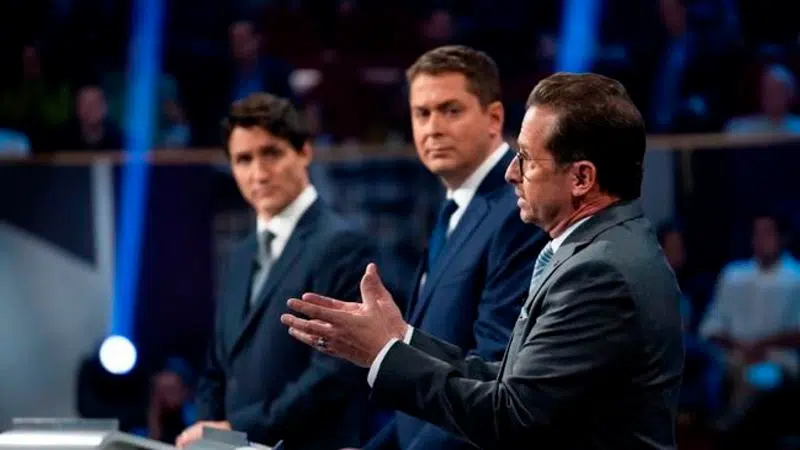
Federal leaders make appeal to Quebec voters, as Bloc Quebecois surges
OTTAWA — Combating the danger that a resurgent Bloc Quebecois will take seats away from all of them in the Oct. 21 election, federal party leaders sought Thursday to endear themselves to francophone voters in the final debate of the election campaign.
The Bloc’s rising popularity — now sitting at around 25 per cent support in Quebec, recent polls suggest — under leader Yves-Francois Blanchet has upended the electoral battle in the crucial province, adding even greater weight to the French-language event.
For much of Thursday night Blanchet skated by and discussed his own platform, which includes taxes on web giants with funds going back to artists, the end to oil-industry subsidies, and a new equalization payment scheme focused on fighting climate change.
Other leaders took the opportunity of a question on the rights of francophones outside of Quebec to profess their affection for the French language and their support for a guarantee of equal services.
